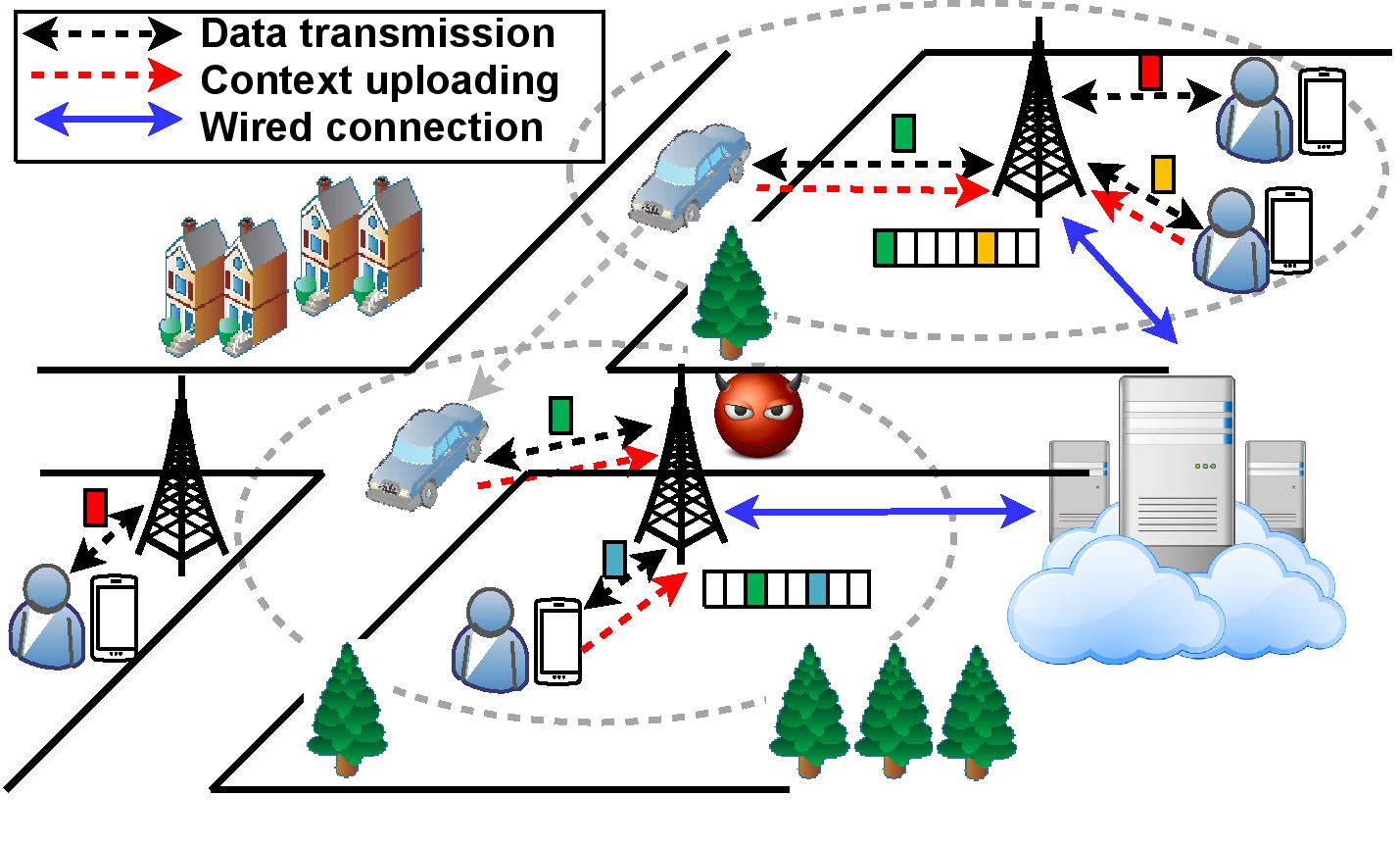
CAREER: Leveraging Context-Aware Sensing to Enhance QoE for Mobile Users: A Practical Framework Design
Sponsored by the U.S. National Science Foundation
May 2020 - April 2025
Project Description
Due to the proliferation of powerful mobile terminals, resource-demanding multimedia applications, such as video streaming, video calls, and online gaming, have been surging during the past decade. How to improve the satisfaction of these applications as perceived subjectively by end-users, widely interpreted as the quality of experience (QoE), is critical to the operators of wireless networks. Prevailing QoE enhancement methods are mostly operator-oriented, while users play somewhat limited roles. On the other hand, mobile devices are equipped with multiple embedded sensors that enable the collection and inference of rich contextual information. Motivated by these observations, this project aims to leverage user-centric context sensing to enhance QoE in wireless networks. The proposed user-assisted QoE enhancement, if successful, has the potential to serve as a promising complement to the existing centralized QoE management framework. Besides, it will open up new opportunities that incorporate mobile users for network measurement and management that has been mostly conducted by network operators alone. The project plans to engage female and under-represented minority students in the research activities and actively outreach to middle and high school students. The scholarly discovery will be disseminated broadly to the community.

This project intends to develop a practical framework to leverage context sensing for QoE enhancement and address critical challenges involved therein. More specifically, the proposed research will be carried out through three closely related research thrusts. The first thrust studies fine-granular user context prediction based on historical records harvested from mobile devices. As another key ingredient, it further investigates how to utilize the prediction results to assist with resource provisioning and QoE improvement in wireless networks. Realizing that context sensing may incur extra communication and energy overhead, the second thrust intends to reduce the cost by developing cost-efficient context sampling and accurate reconstruction that adapt to context dynamics. The third thrust addresses the privacy concern during context sensing. A flexible context trading framework will be developed to allow individual users to decide how much privacy to disclose in the trade of QoE improvement. The proposed research is inter-disciplinary, which spans resource management, learning techniques, compressive sensing, differential privacy, and economic theories. The proposed mechanisms and designs will be thoroughly evaluated via a combination of measurement campaigns, simulations, and experimental studies. A medium-scale prototype of off-the-shelf mobile devices, routers, servers, and cloud will be implemented.
Principle Investigator
 |
Ming Li Associate Professor Department of computer science and Engineering The University of Texas At Arlington Homepage: http://ranger.uta.edu/~mingli |
Publications
Locally Differentially Private Personal Data Markets using Contextual Dynamic Pricing Mechanism,
Mingyan Xiao, Ming Li, Jennifer Jie Zhang,
IEEE Transactions on Dependable and Secure Computing (TDSC), 2023.
SpeechQoE: A Novel Personalized QoE Assessment Model for Voice Services via Speech Sensing,
Chaowei Wang, Huadi Zhu, Ming Li,
ACM Conference on Embedded Networked Sensor Systems (SenSys), 2022.
Eliciting Joint Truthful Answers and Profiles from Strategic Workers in Mobile Crowdsourcing Systems,
Mingyan Xiao, Wenqiang Jin, Chengkai Li, and Ming Li,
IEEE Transactions on Mobile Computing (TMC), 2022.
EyeQoE: A Novel QoE Assessment Model for 360-degree Videos Using Ocular Behaviors,
Huadi Zhu, Tianhao Li, Chaowei Wang, Wenqiang Jin, Srinivasan Murali, Mingyan Xiao, Dongqing Ye, Ming Li,
ACM International Joint Conference on Pervasive and Ubiquitous Computing (Ubicomp), 2022.
Collusion-Resistant Worker Recruitment in Crowdsourcing Systems,
Mingyan Xiao, Wenqiang Jin, Ming Li, Lei Yang, Arun Thapa, and Pan Li,
IEEE Transactions on Mobile Computing (TMC), 2021.
Privacy-Preserving Data Aggregation for Mobile Crowdsensing with Externality: An Auction Approach,
Mengyuan Zhang, Lei Yang, Shibo He, Ming Li, and Junshan Zhang,
ACM/IEEE Transactions on Networking (ToN), 2021.
ULPT: A User-Centric Location Privacy Trading Framework for Mobile Crowd Sensing,
Wenqiang Jin, Mingyan Xiao, Linke Guo, Lei Yang, and Ming Li,
IEEE Transactions on Mobile Computing (TMC), 2021.
STEP: A Spatio-Temporal Fine-Granular User Traffic Prediction System for Cellular Networks,
Lixing Yu, Ming Li, Wenqiang Jin, Yifan Guo, Qianlong Wang, Feng Yan, and Pan Li,
IEEE Transactions on Mobile Computing (TMC), 2020.